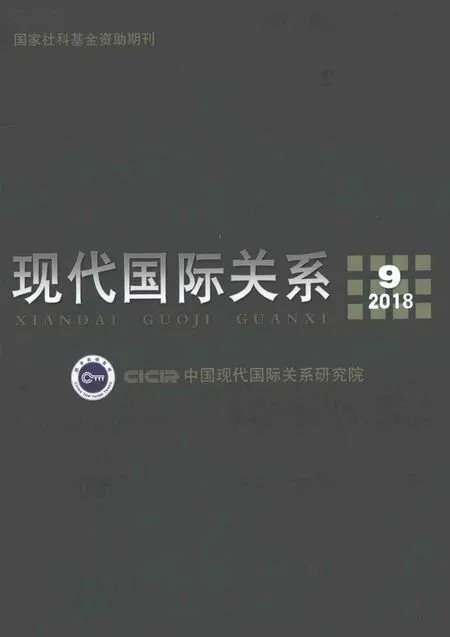Abstracts
Onthe10thAnniversaryoftheFinancialCrisis
JiangYong
Abstract: Since the subprime mortgage crisis broke out in the United States in 2008, causing global economic crisis, economic, social and political crises have exerted profound influence in world economy and politics. Under the pressure of crisis, financial regulation and global governance have been enhanced but the measures are not strong enough to address the problem. The growing strength of monopoly capital and speculation would trigger new crisis.
Keywords: financial crisis; 10th anniversary; lessons
FinancialRisksFacedbyEmergingEconomiesandChina’sCountermeasures
ChengBibo&LiuBiao
Abstract: The emerging economies are engulfed in financial risks. On the one hand, foreign debt is excessive, proportion of foreign capital in domestic markets is too high, ratio of monetary reserve to currency is reduced, and domestic supply and demand is imbalanced. On the other hand, increasing economic dependence on foreign countries results in an economy easily swayed by the dollar-dominated international monetary system. It is the interweaving of internal and external factors that makes emerging economies extremely vulnerable to tightening of the US dollar and international speculative capital whenever there is an upward trend in their economies. The subprime mortgage crisis is a new type of crisis. Although it extends to emerging economies, it is also a prelude to the economic imbalances caused by the huge wealth gap in the United States. With the advent of a new US economic growth cycle, the imbalances of emerging economies and their increasing dependence on foreign capital, the imbalances of US economy and its possible transformation to an export-dependent economy, the current economic crisis will be particularly profound. In order to address the current crisis, China should simulate the crisis, comprehend the law of the economic cycle, balance the domestic economy, and implement a defensive counterattack strategy.
Keywords: economic cycle; international monetary system; subprime mortgage crisis; economic imbalances
FinancialOpeningandSecurityforDevelopingCountries
YanHaibo
Abstract: Although it has been a decade since the subprime mortgage crisis broke out in the United States in 2008, world economy is still experiencing a slow growth. Global economic and financial situation is still characterized by turbulence. This paper reviews the origin of and lessons from financial opening in developing countries. The author also analyzes the new conditions developing countries face in pursuing further financial opening since the outbreak of 2008 financial crisis, which include involving trend of economic thought, self-adaptability, global financial cycle and de-dollarization. Furthermore, this paper puts forward suggestions such as adhering to liberal protectionism of finance, persevering in equal and reciprocal opening, returning of the financial sectors to serve the real economy, reforming the currency issuance mechanism, advancing the internationalization of Renminbi, and prudently opening the capital account.
Keywords: financial opening; financial security; capital flows; developing countries
USFinancialRegulationReform
GuoMin&FangMengran
Abstract: It has been a decade since the outbreak of the 2008 financial crisis, but systematic financial risk remains the focus of financial regulatory authorities in most countries. Through the implementation of macro-prudential regulation, the prohibition of commercial banks from conducting proprietary trading, the enhancement of banks’ loss-absorbing capacity, the focus on the too-big-to-fail issue, and in conjunction with quantitative easing policy, the US economy has returned to ascendant path. Since Trump came to power, the direction of financial regulation reform in the United States has been shifted, and the financial regulation system established after the crisis has been gradually deregulated. China is facing frequent financial risks. As uncertainty between China and the United States is mounting, we should persist in making progress while ensuring stability, preventing systematic financial risks from breaking out, and enabling the financial sectors to better serve the real economy.
Keywords: US financial regulation policy; systematic financial risk; China-US trade
TransatlanticRelationship:ChangesandProspects
ZhangJian
Abstract: The current transatlantic relationship is undergoing profound changes: the Trump administration obviously despises and even exerts hostility to Europe and the transatlantic alliance; the vast majority of the European governments and people are turning anti-American with a particular dislike toward Trump, questioning the value and future of the transatlantic alliance, which is a phenomenon that has been rare in the history of transatlantic relations. Although the current changes in the transatlantic relations are focused on Trump, they are actually the result of combined effects of geopolitical differences and economic competition between Europe and the US, the internal social and political changes over the past years and so on. The transatlantic relationship will enter into a new era when increasing disputes and contradictions will erupt. It is unlikely to return to what it used to be even if another US president takes office. The process of normalization and de-specialization between the two sides will accelerate, with more fundamental changes in the Western world beginning to occur. However, the transatlantic relationship is still unique. Europe and the US have more mutual willingness than differences in dealing with the non-Western world issues such as China and Russia.
Keywords: transatlantic relationship; Europe; US
(Edited By Zhang Yimeng)

